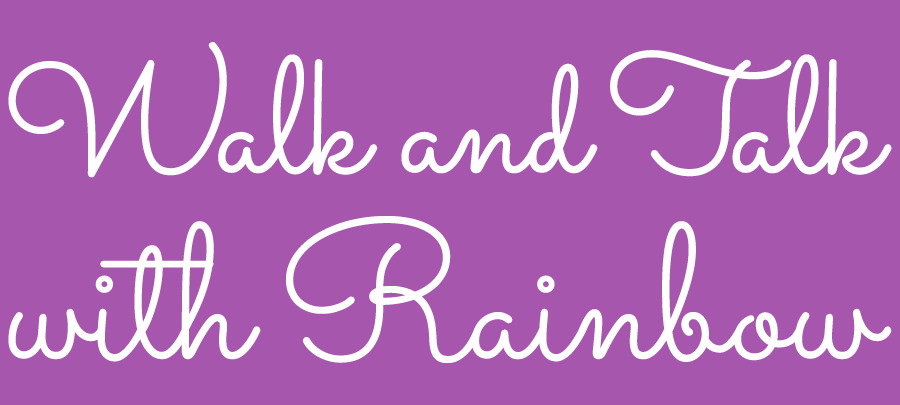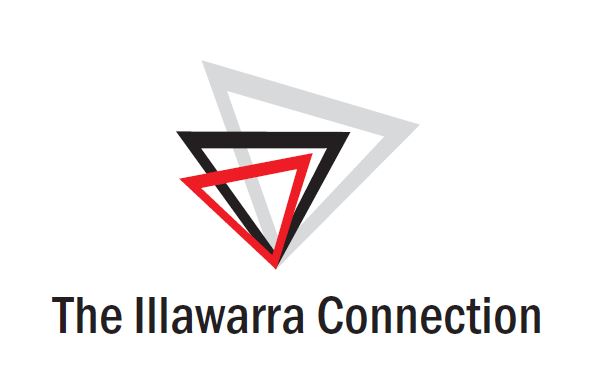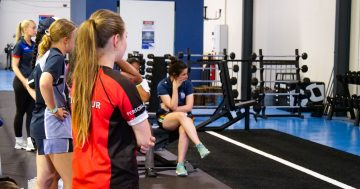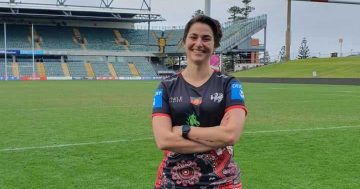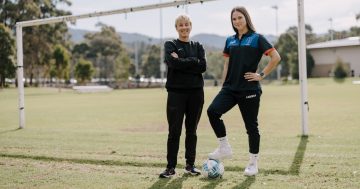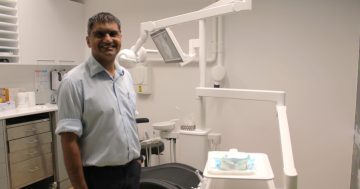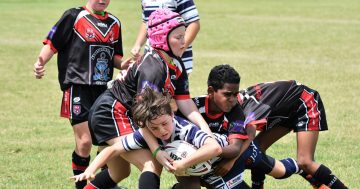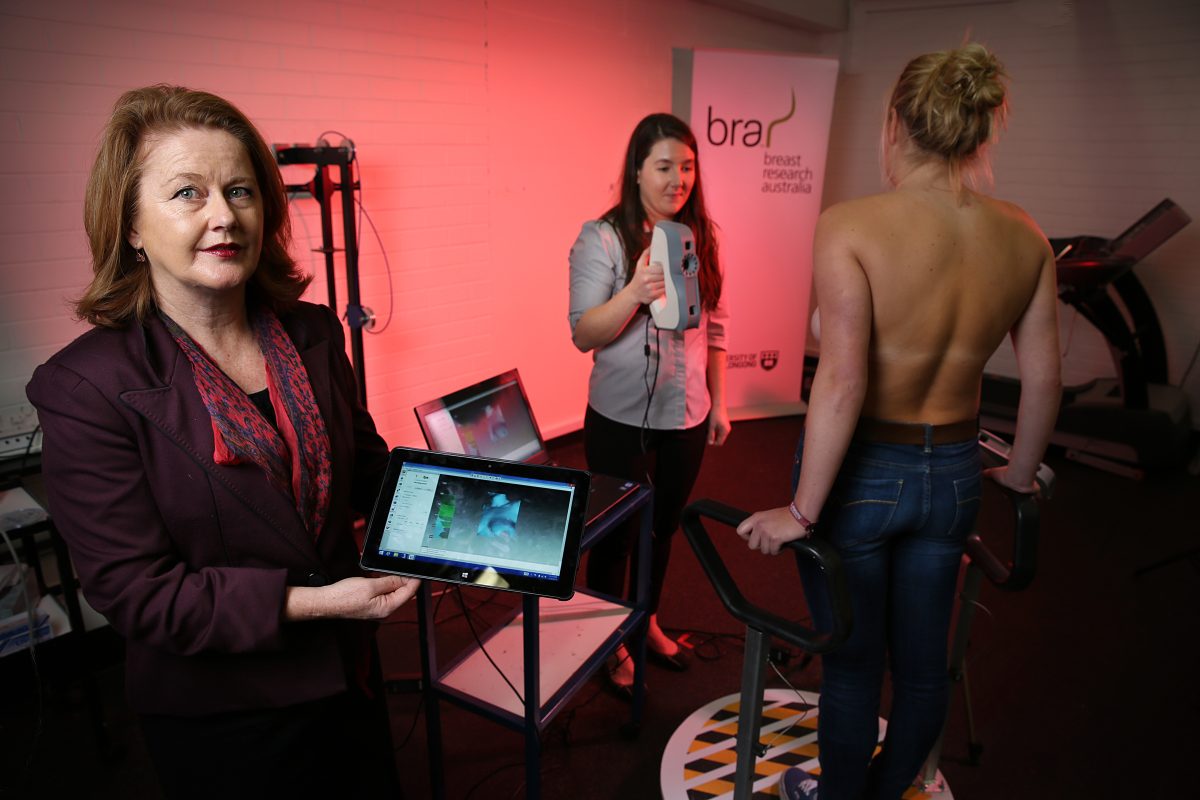
Associate Professor Deirdre McGhee has spent decades researching breast health and injuries to improve outcomes for female athletes. Photos: UOW/Paul Jones.
It’s a sensitive topic that some sportspeople shy away from, but there a calls for a silent, female-specific injury to be brought into the spotlight to reduce the stigma and long-term impacts it has on many women.
University of Wollongong’s Associate Professor Deirdre McGhee is a world leader in research and education on breast health for female athletes including breast support and bra fit, breast injuries prevention and management and breast cancer awareness.
Her research is breaking down barriers and improving outcomes for women in sports, with most of these types of injuries previously falling through the gaps.
“In injury surveillance systems you use in sport, you either mark them off using a body chart and because we’re using the strategies in these sports like league, union, AFL, we’re just taking everything from the men and putting it in with the women, and a male body chart won’t have breasts on it,” she said.
“Or you classify an injury in terms of a muscle sprain, a ligament strain, a fracture and the breast is a gland.”
She said the injuries were treatable by physiotherapists or medical professionals but often went unnoticed, with athletes not reporting them.
“The problem with not reporting it and not getting any treatment is that you can have long-term consequences of breast injuries,” Associate Professor McGhee said.
“And one of those is that the fat of your breast can actually die, and that’s called breast fat necrosis, and that will scar up to form a lump and so a woman will find a lump in her breast and it’s very hard clinically and through imaging to differentiate that and breast cancer.”
This could lead to avoidable biopsies and fear around having cancer.
Associate Professor McGhee said these injuries could also stunt breast growth in younger people, stop lactating women from being able to breastfeed and burst implants.
But this research is not about scaring people away from sport, rather finding ways that they can play safely and promote further participation.
“The little bit of research that has been done with breast injuries found that the mechanism of injury in soccer is different to league which is different to AFL so we need to research each sport and look at what’s the mechanism of injury and look at what strategies there are for how we can prevent them,” Associate Professor McGhee said.
“If we understand how they are occurring we can then go, are there things that we can do to prevent them?”
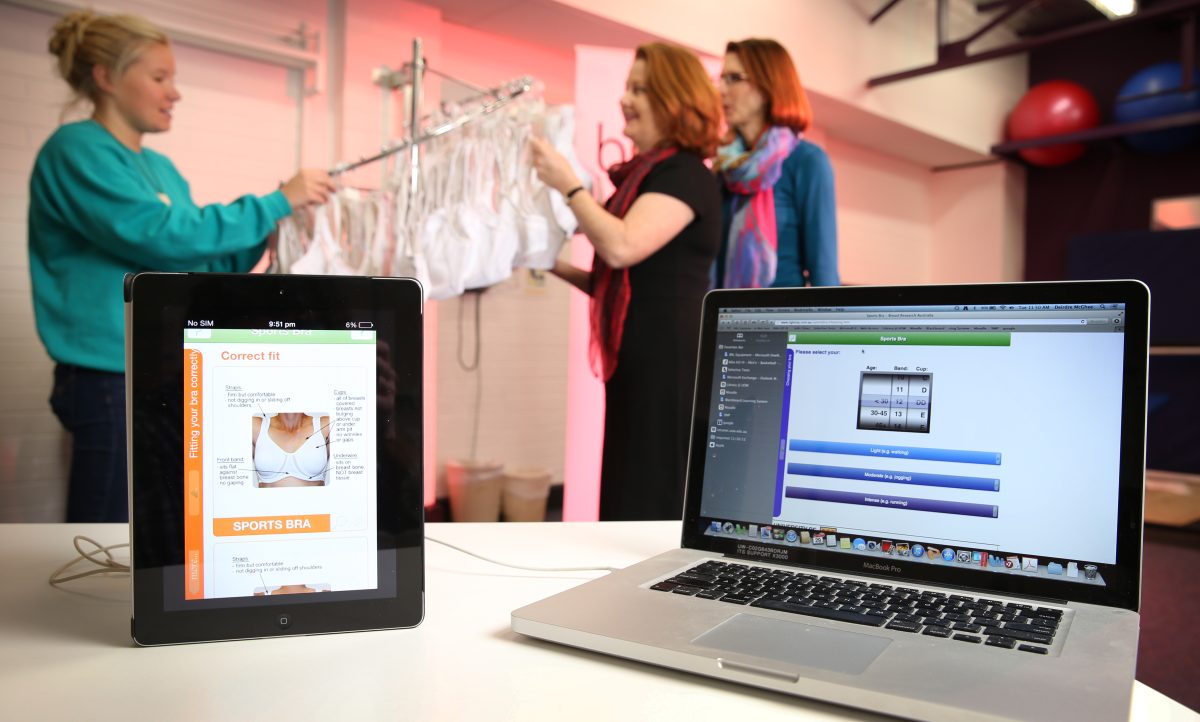
Associate Professor Deidre McGhee has created a guide to help athletes select bras suited to their body and sport.
She said even wearing the incorrect type of sports bra could create damage and reduce performance.
“Because your breast attaches to the muscles of your shoulder and your shoulder blade and your trunk, if they’re not supported enough what you do is you change your posture and you tense those muscles.
“We also found when women are wearing uncomfortable bras they’re a distraction and they’re adjusting their bra and they won’t even know they’re doing it.”
Associate Professor McGhee has worked with the world’s top athletes and found many of them were wearing inadequate support and didn’t realise how comfortable they could be.
“I’ve being doing this for over 20 years and there’s strong research evidence that if you’re involved in a sport that involves running, jumping and forceful arm movement, it doesn’t matter what size your breasts are you should be wearing a high support sports bra,” she said. “The problem is women don’t know what that means.”
By developing an app, Associate Professor McGhee has made finding the right fit simple.
“It shows you what features to look for relative to your breast size, your age and the type of sport you want to do.”
But more needs to be done to change the mindset.
“We need to change our thinking and we need to think of a sports bra as a piece of sporting equipment and we need to say a breast injury is a sports injury.”
And while more research still needs to be done, Associate Professor McGhee said changing uniforms was a step that sporting bodies could take now to help encourage participation for vulnerable teenagers.
“In a sport with running and jumping, the uniform must be designed to enable the athlete to wear the bra of her choice underneath it because different bras suit different women with different breast and torso shape,” she said.
“Beach volleyball is a particular gripe of mine. It doesn’t allow them to wear a bra underneath and there’s these thin straps and it’s not supportive and there’s so much jumping.”
And while support is the priority, she also said there was a psychological and emotional aspect to it.
“It makes me so mad when we know adolescent females are sensitive about their breasts and there’s sports like basketball and netball and they make these tight little clingy uniforms.
“We’re not accentuating the male shape so why the hell are we doing it to females.”
Anyone can access the free sports bra fitting tool and more breast support resources at www.bra.edu.au






